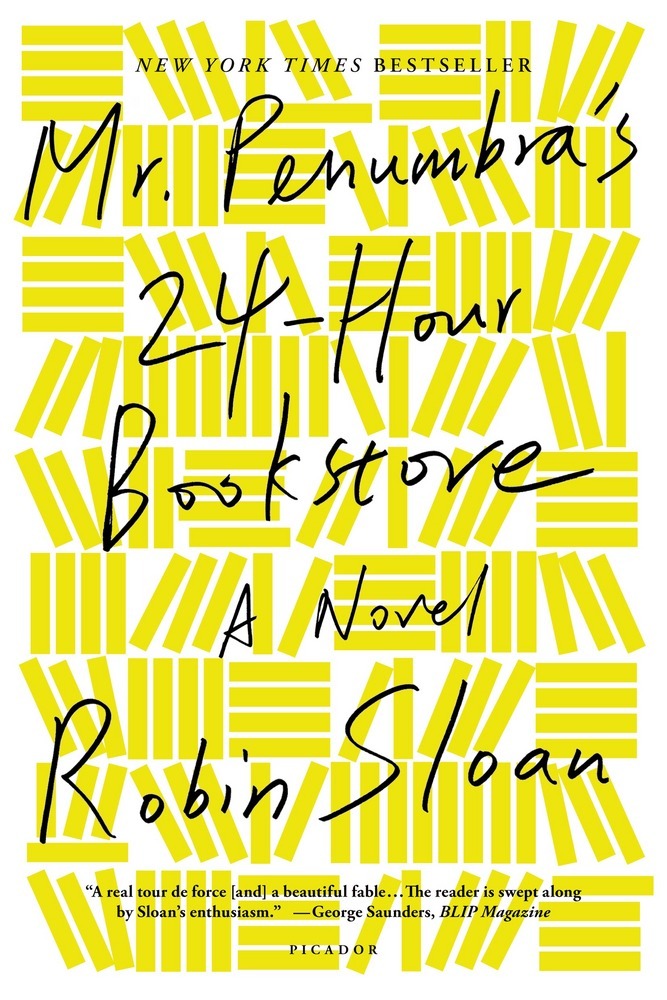When you work in publishing, you read a lot. And I mean a lot. I’m not complaining here—there are much worse professional fates met by people with less mentally stimulating callings. But you become more discriminating, more business-minded about the process. However, sometimes there comes along a book that can still make you feel like you’re a high-schooler with a new crush on a cute classmate. It gives you butterflies. It makes you giggle in social situations when no one said anything funny. This book feels fresh and cool, like a spring breeze.
Last weekend I read Robin Sloan’s runaway hit, Mr. Penumbra’s 24-Hour Bookstore. I knew this book had a following, had seen it on The Huffington Post and Slate reading lists. My interest was piqued, but I had to wade through a pile of books for work before it was Mr. Penumbra’s turn. Before heading out to Prospect Park on Saturday, I looked around my apartment and the unassuming cover drew me in—no ceremonious portraits of American heroes, no feminine silhouettes or Game of Thrones-like swords—only cute little yellow rectangles. It was just right.
As soon as I started reading, I noticed the lightness in Robin Sloan’s prose. It flowed like sunshine between the pages, unperturbed by the density of sentence structure or $10 words. It was smart. A little too smart.
Let’s take a detour for a short synopsis: A clerk (with a background in web design and coding) working in a dusty old bookstore in San Francisco discovers that the bookstore is a front for a centuries-old secret society. Of course, every secret society has a dark past. The clerk’s digi-nerd girlfriend (a Googler obsessed with immortality through machines), his two best friends (one of whom is the CEO of a startup), and, of course, Mr. Penumbra, set off to solve a mystery and decide the future of the secret society for good.
Google? Check! Old books? Check! This was a tale after my own heart! Reading it made me feel like it’s okay to be a Luddite who also owns an iPhone, iPad, and a MacBook. I can finally stop searching for that therapy group. Sloan’s plot is tongue-in-cheek, but it’s not a razor-sharp commentary, which let me off the hook for any deep cultural analysis. I was free to be coaxed, page by page, into the caricatured reality simulated by the author. I was delighted by the sweetness of the relationships between the characters, by their youthful tenacity, by the warmth emanating out of the blue eyes peering from Mr. Penumbra’s face, and buoyed by the hope that there is still a little bit of old magic left in the world—even one dominated by glowing screens and AIs named Siri.
As I sat in The Grey Dog in the West Village a few days later, drinking an iced coffee, resting my feet on the chair next to me (pausing only to scream the chorus from Alanis Morissette’s “You Oughta Know” along with the baristas), I flipped through the last few pages of Mr. Penumbra’s 24-Hour Bookstore. I was suddenly overwhelmed by how much I loved this book. I could kiss it . . . In fact, I may have planted a reverie-drowsed peck on the jacket in between choruses. I felt so light from reading that I thought I could float away. Only Alanis anchored me to my seat. How perfect, I thought. This book brought me the perfect moment. There are only so many of those in life. And I just wanted to say thank you for that, Robin Sloan.








